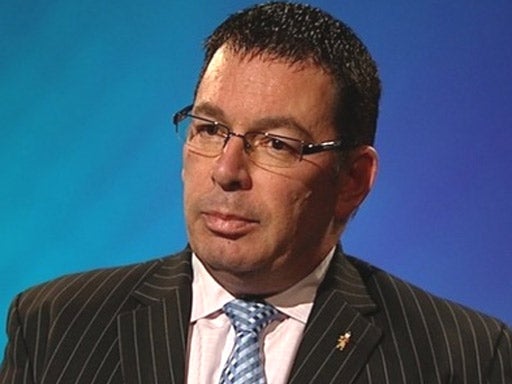How police rank-and-file spied their chance to settle some political scores

The resignation of Andrew Mitchell was a rare victory for the Police Federation, which had been repeatedly rebuffed throughout 2012 during its battles against government reforms of pay and pensions.
Although they consider themselves the natural party of law and order, the Conservatives have been at loggerheads with the federation – a vocal and bullish body which represents rank-and-file officers – over a raft of policies and proposals, including 20 per cent budget cuts, pension reforms and an end to the “jobs for life” culture.
The greatest anger was reserved for the most wide-ranging review of the service in 30 years by Tom Winsor, the former rail regulator, which in March called for forces to get the power to make officers compulsorily redundant, as well as recommending a £3,500 cut in the basic starting wage for a constable.
The Home Secretary, Theresa May, was heckled when she spoke at the annual conference of the federation, which represents 140,000 officers up to the rank of chief inspector but does not have the power to call a strike.
In what was seen within police ranks as a pointed snub, Ms May later appointed Mr Winsor to become the Chief Inspector of Constabulary as the Government sought to push through his agenda of change.
Against that backdrop, Mr Mitchell’s indiscretions in Downing Streets were a prime opportunity for retaliation. The head of the Metropolitan Police Federation, John Tully, called for Mr Mitchell’s resignation and said that he was lucky not to be arrested for his outburst.
The campaign was taken up by officers in the Midlands, where Mr Mitchell was an MP for Sutton Coldfield, and they continued to demand his removal. They called for a meeting where Mr Mitchell was asked to detail the events of the evening in Downing Street.
Federation sources indicated splits over tactics as the leadership from the Met pulled back from outright confrontation, while officials in the West Midlands pushed ahead with its campaign, including off-duty officers wearing “PC Pleb” shirts. Jon Gaunt, the abrasive broadcaster and former columnist at The Sun, which first ran the “Plebgate” story, was advising the West Midlands federation on a short-term contract.
“The Police Federation of England and Wales does not condone the leaking of official police documentation and welcomes the Metropolitan Police’s decision to investigate the source of this leak as part of their wider investigation,” it said in a statement. “We will assist with enquiries wherever possible.”
Following Mr Mitchell’s resignation, the Police Federation chairman Paul McKeever said that his departure was “almost inevitable”.
He added: “Andrew Mitchell has apologised to our Metropolitan Police colleague and our colleague has accepted the apology. We hope this matter is now closed.”
Subscribe to Independent Premium to bookmark this article
Want to bookmark your favourite articles and stories to read or reference later? Start your Independent Premium subscription today.

Join our commenting forum
Join thought-provoking conversations, follow other Independent readers and see their replies